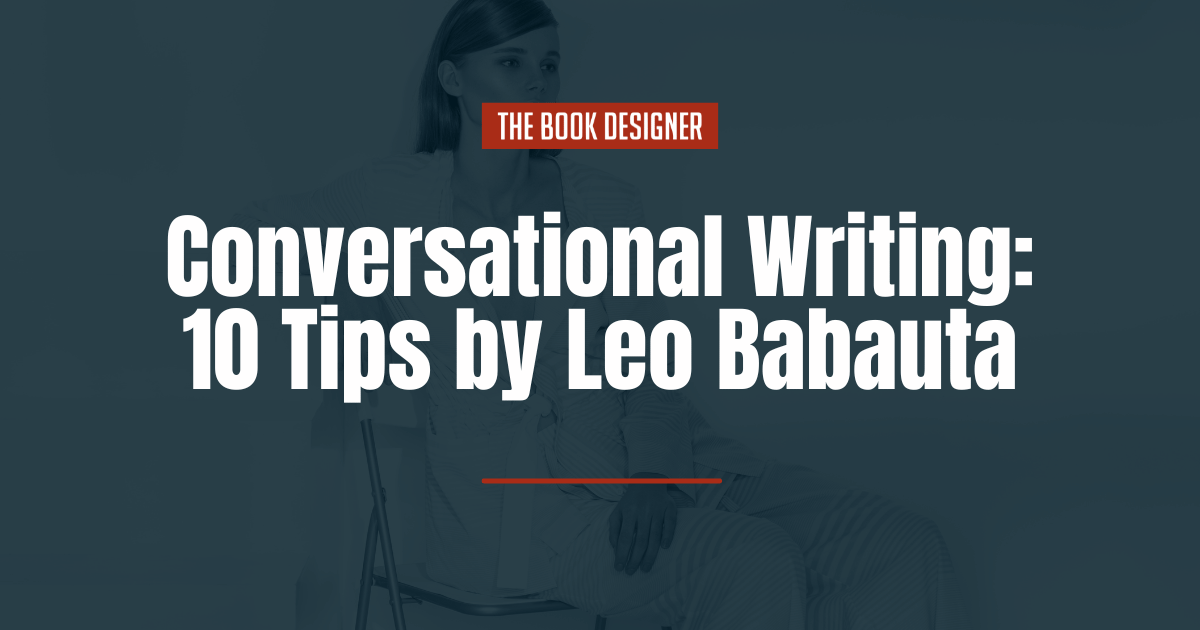Writing, when properly managed, is but a different name for conversation. – Laurence Sterne
While I don’t claim to be the world’s greatest writer, one of my strengths as a writer is the ability to write in a fairly conversational style.
I might not write like everyone talks, but I write like I talk, and I think it creates a more welcoming style of writing.
Readers are drawn into conversational writing as they are into a good conversation, ideally, and I’ve found this style of writing to be relaxed, fun, and engaging.
Of course, there are as many styles of conversation as there are people, so what is conversational to me isn’t necessarily so to you. So making your style more conversational doesn’t mean following rigid rules or writing like me (or anyone else). It just means that you write as if you’re talking to the reader, instead of using more formal or academic language.
It works well for me. If you’re interested in writing conversationally, here are some ideas that might help.
- Listen to yourself talk. You can’t write like you talk unless you know how that sounds. You have to develop an ear for your speech, which means paying attention to your speech. Listen to yourself as you talk to others (I know, this can be distracting and lead to some bad conversations). How do you open a conversation? How do you structure your sentences? What kind of words do you use often? Do you speak according to proper grammar, or do you break the rules? Do you use slang? Does it change depending on who you’re talking to?
- Listen to others talk. It’s helpful also to learn the speech patterns of others, not just yourself. And listen to real-life people, not people in movies or television — you want real conversation patterns, not the patterns that screenwriters write. Ideally the two should be the same, but they aren’t always. I like to eavesdrop or people watch to get good samples of real-life conversation.
- Read good conversational writing. Find good writers who write conversationally, and study their writing patterns and the phrases and words they use. I’m not the only example — many good blogs use this style, as do many good novelists and columnists.
- Write as if you’re talking to a close friend. My favorite writing tip comes from Kurt Vonnegut, who advised writers to have a specific reader in mind, and write as if you’re talking to that person. His ideal reader was his sister. Who is yours? If you are talking to the world in general, you’ll probably write more like a speech, rather than like a conversation.
- Address the reader directly. Instead of writing in third person or to a general audience, you should speak one-on-one with the reader. Note that I said “you should” rather than “a writer should” or “one should”. When you speak to someone, you usually speak to them directly (although third-person sentences can also be used in conversation).
- Talk in your head as you write. By this I mean say it out loud, to your mind’s ear. You should hear your writing as you’re putting pen to paper or pounding away on the keyboard. You could do this by actually saying the words out loud, with your mouth, but I find that method distracting — it’s much better to have a voice in your head. Good writers often have several voices speaking in their heads. It’s why they’re so crazy.
- Eliminate formalities. Conversational speech doesn’t follow the rules of formal writing. You can start a sentence with “and” or “but” … you can have run-on sentences from time-to-time, and use ellipses. You can end sentences with prepositions (I do it all the time). I’m not saying you should abandon the rules of grammar altogether, but if faced with a choice between proper grammar and sounding conversational, I will choose conversational. It should be a conscious choice — don’t just ignore the rules, but break them for good reasons.
- But don’t be too informal. There’s informal and then there’s slang. Uhs and ums aren’t appropriate in writing. Proper punctuation is much easier to read than sentences without punctuation or capitalization.
- Read it out loud when you’re done. After you’ve written a paragraph, or an entire piece (a post, a chapter, a story), read it aloud. Hear how it sounds when spoken, not just by your mind’s voice, but by your mouth’s voice.
- If it sounds stilted, change it. When you read it aloud (or in your head as you’re writing), and you hear something that sounds stilted, go back and change it. Make it flow better, make it sound more casual, make it more like speech.
Conversation should be pleasant without scurrility, witty without affectation, free without indecency, learned without conceitedness, novel without falsehood. – William Shakespeare
If you enjoyed this post, please share it with your friends on social media 🙂
















